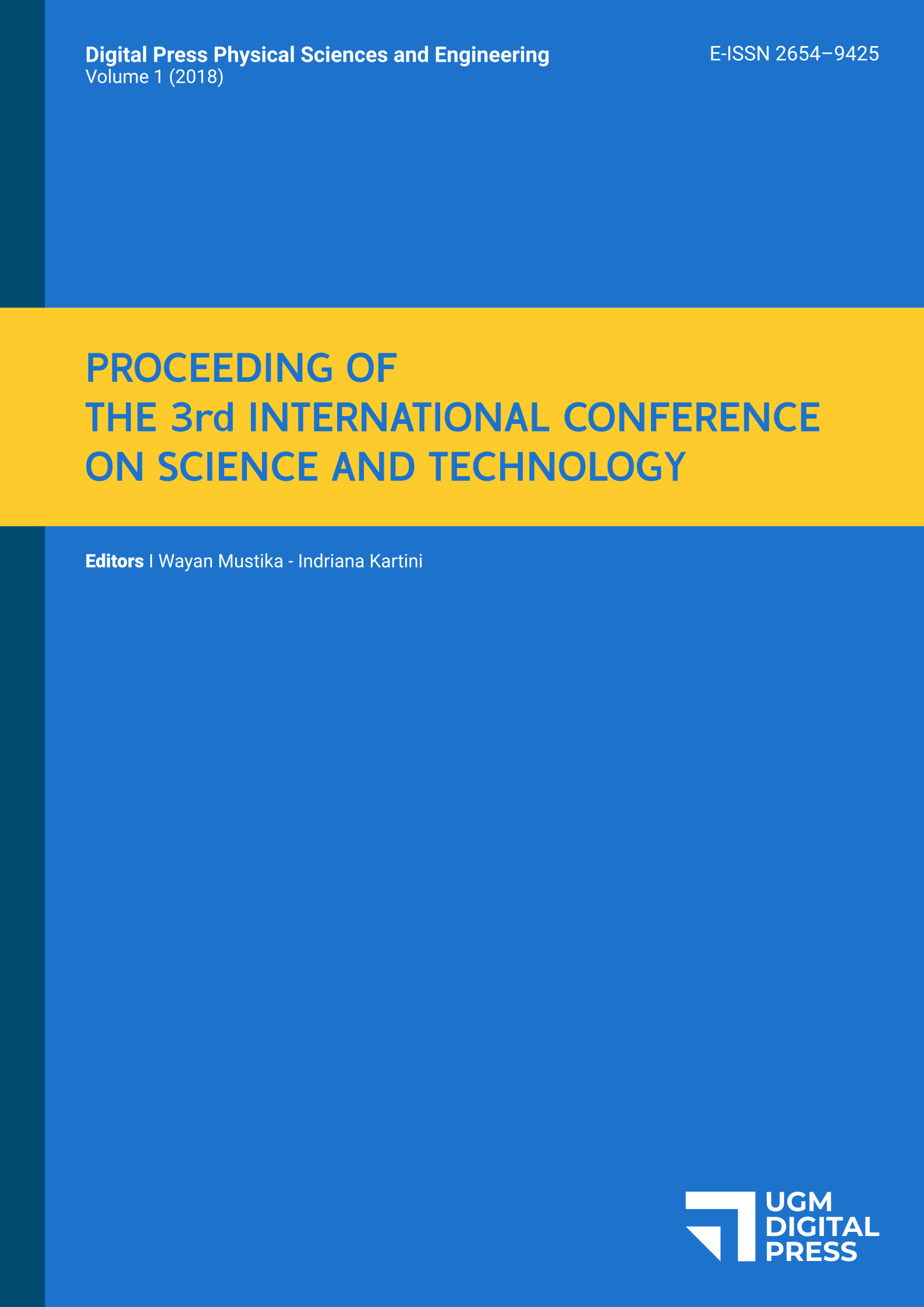Profile of Triiodothyronine (T3) and Thyroxine (T4) of female Bali breed cattle transported by traditional vessel from Sumbawa to Pontianak
Nichlah Rifqiyah
1
, Hindar Panguji
2
, Irkham Widiyono
3
, Pudji Astuti
3
1
Faculty of Veterinary Science, Universitas Gadjah Mada, Yogyakarta, Indonesia
2
Quarantine Medical Veterinarian Kendari Agricultural Quarantine Agency, Puuwatu, Kendari, Southeast Sulawesi, Indonesia
3
Faculty of Veterinary Medicine, Universitas Gadjah Mada, Yogyakarta, Indonesia
drh.nichlah@gmail.com
Abstract
Transportation of livestock using traditional vessel is one of traditional methodused to fulfill the needs of beef. It requires precise handling because it may cause stress in animals. Transportation stress causing 8 to 11 % of animal death, decreasing the body weight up to 8 % and decreasing reproductive performance of animals. This study aimed to determine the profile of triiodothyronine (T3) and thyroxine (T4) hormones in 1 to 2 y.o female Bali breeding cattle transported from Sumbawa to Pontianak for 120 h using 100 GT traditional vessel with two floors and a capacity of 300 to 400 heads. Five cows were selected by purposive sampling. Blood samples were taken three times: before transportation (at Sumbawa Animal Quarantine Installation), during loading (at traditional vessel) and after transportation (at Pontianak Animal Quarantine Installation) then tested by ELISA to determine the profile of triiodothyronine (T3) and thyroxine (T4). The result showed that there was a decline in triiodothyronine (T3) and thyroxine (T4) concentration, they increased during loading, decreased during docking, and decreased further when the livestock were at Animal Quarantine Installation. Therefore, transportation affects the profile of triiodothyronine (T3) and thyroxine (T4). It would be concluded that transportation affected hormone of T3 and T4.
Keywords
thyroxine (T4), traditional vessel, transportation, triiodothyronine (T3), Bali breed cattle
References
2 Quarantine Medical Veterinarian Kendari Agricultural Quarantine Agency, Puuwatu, Kendari, Southeast Sulawesi, Indonesia
3 Faculty of Veterinary Medicine, Universitas Gadjah Mada, Yogyakarta, Indonesia
drh.nichlah@gmail.com
Abstract
Transportation of livestock using traditional vessel is one of traditional methodused to fulfill the needs of beef. It requires precise handling because it may cause stress in animals. Transportation stress causing 8 to 11 % of animal death, decreasing the body weight up to 8 % and decreasing reproductive performance of animals. This study aimed to determine the profile of triiodothyronine (T3) and thyroxine (T4) hormones in 1 to 2 y.o female Bali breeding cattle transported from Sumbawa to Pontianak for 120 h using 100 GT traditional vessel with two floors and a capacity of 300 to 400 heads. Five cows were selected by purposive sampling. Blood samples were taken three times: before transportation (at Sumbawa Animal Quarantine Installation), during loading (at traditional vessel) and after transportation (at Pontianak Animal Quarantine Installation) then tested by ELISA to determine the profile of triiodothyronine (T3) and thyroxine (T4). The result showed that there was a decline in triiodothyronine (T3) and thyroxine (T4) concentration, they increased during loading, decreased during docking, and decreased further when the livestock were at Animal Quarantine Installation. Therefore, transportation affects the profile of triiodothyronine (T3) and thyroxine (T4). It would be concluded that transportation affected hormone of T3 and T4.

